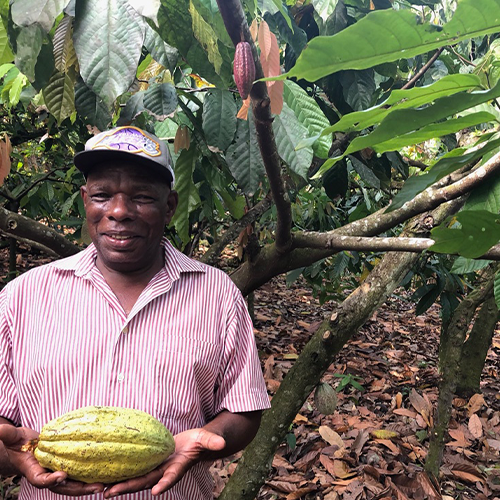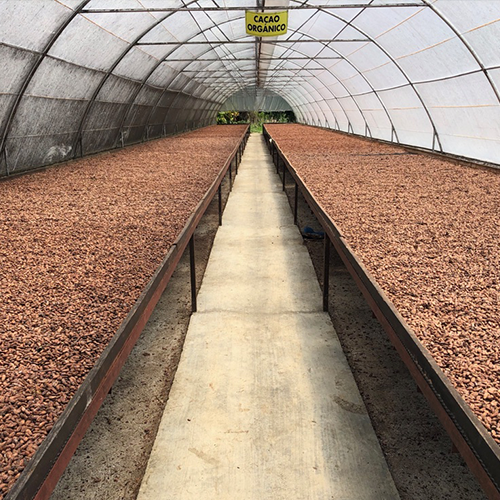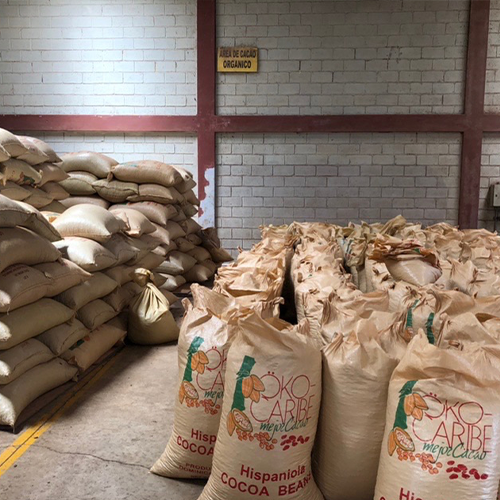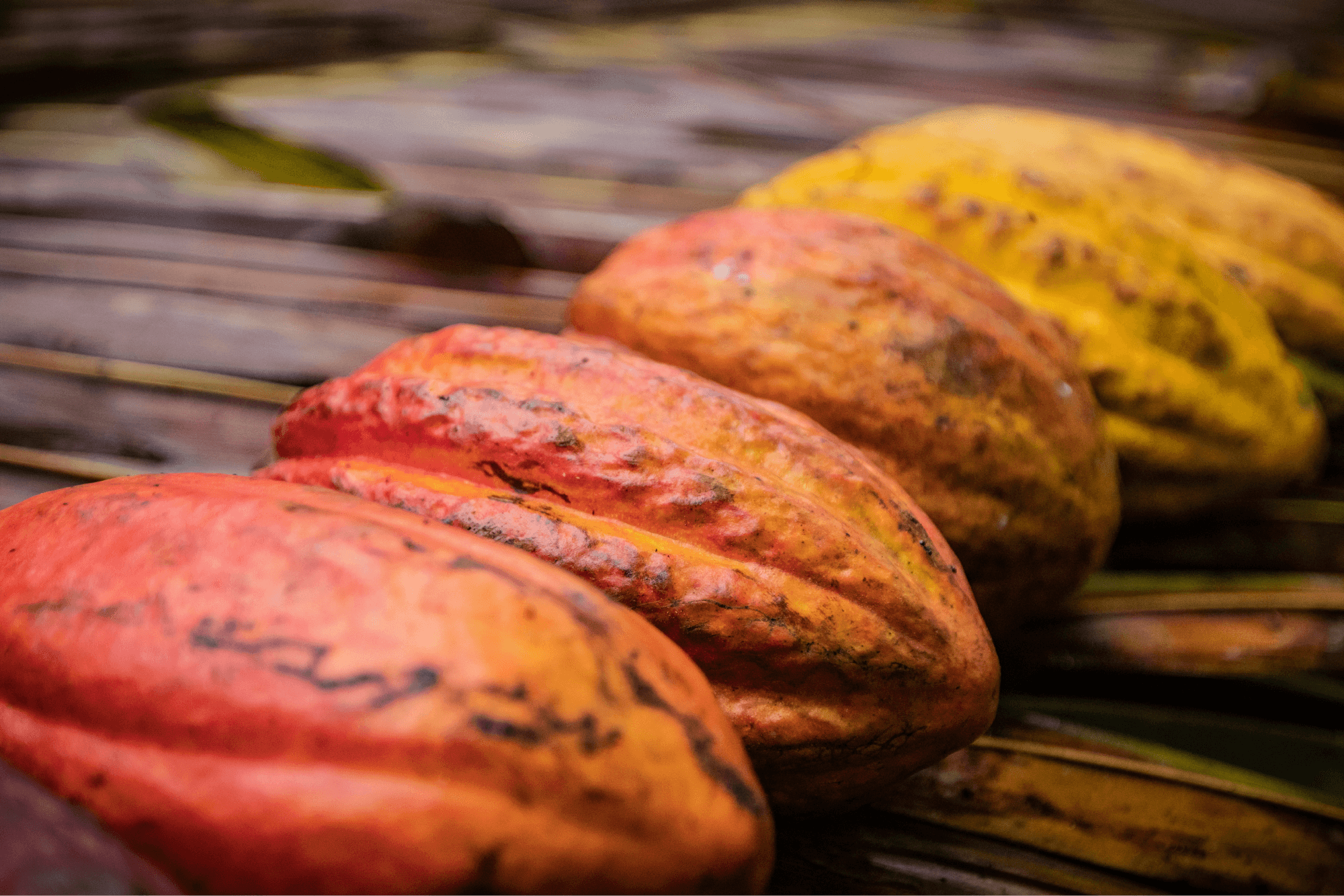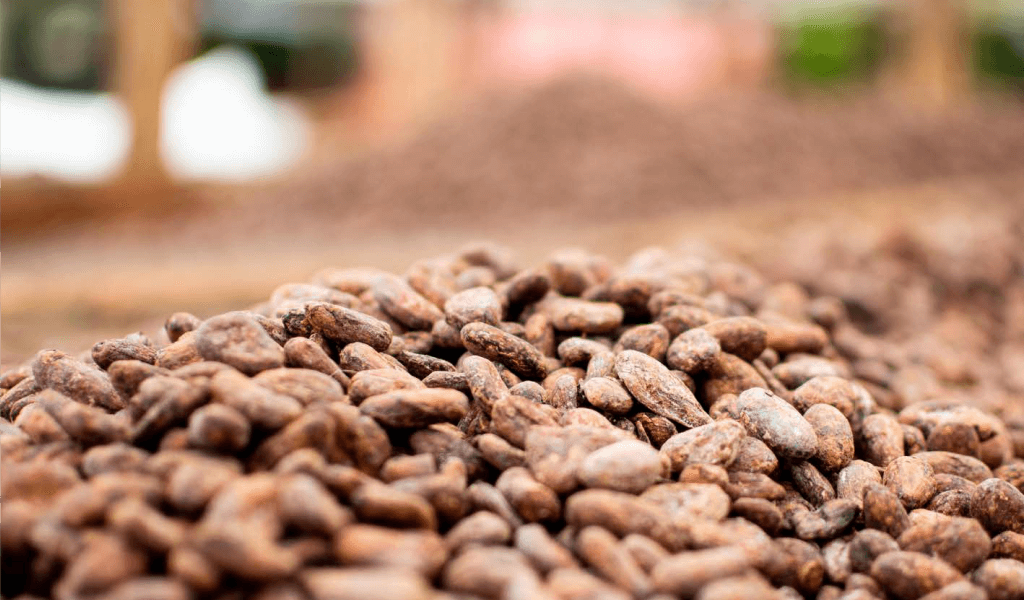Dominican Republic
ÖKO CARIBE
This is an award winning cacao, highly flexible and and consistently produces well-balanced flavors.
2024 Data - People
Community-focused initiatives: Support for community activities, support for road repairs
Trainings conducted: Organic Agriculture, Crop Work, Weed Control, Pruning, Reseeding, Association Formation
Producers purchased from: 76
Female producers: 11
Producers under 35 y/o: 1
Organic producers: 76
Total # of producers trained: 80
Total # of female producers trained: 7
Total # of producers under 35y/o trained: 2
Full time employees: 15
Full time female employees: 7
Part time employees: 7
Part time female employees: 5
Average farm size (ha): 10.07
Average sales per producer (dry kg): 1,537
Average annual cacao revenue per producer: $13,113.92
2024 Data - Planet
Crops that are used for intercropping: Avocado, Banana, plantain, oranges, Ñame, Yautia, Buen Pan
Environmental practices: Plastic Collection, Construction of Dead Barriers
Organic hectares cultivated: 310.27
Average percent of shade of cacao farms: 60%
Distance of producer to facility (km): 96
Distance to port (km): 180
Ocean freight CO2kgs per MT (US): 44
2024 Data - Product
Quality: Ultra Premium
Flavor: S'mores, Brown Sugar, Cherry, Black Pepper
Fermentation Style: Box
Drying Style: Solar dryers
Quality Practices: Random temperature check during the fermentation processcut tests during fermentation
Hand Sorting: Yes
Certifications: Organic
Number of awards in 2023: 5
Nestled in the heart of the Duarte province in the Dominican Republic, Öko-Caribe's central fermentation is a gem of a supplier.
With more than 50 years of combined experience in cacao, owners Adriano de Jesus Rodriguez and Gualberto Acebey Torrejon have fine-tuned their systems to ensure consistent, superior quality in their 500+ tons of annual production. Öko Caribe maintains close relationships with its 165 farmers through tehcnical training, in agronomic practices and organic certification. In addition, owners Adriano and Gualberto have personal relationships with all farmers, offering microfinance loans for cacao-related expenses, as well as personal loans for family emergencies or other community needs. The loyalty betweenÖko Caribe and the farmers they work with is not only evidenced in daily interactions between staff, management and farmers, but also in their best-in-class, award winning final product.
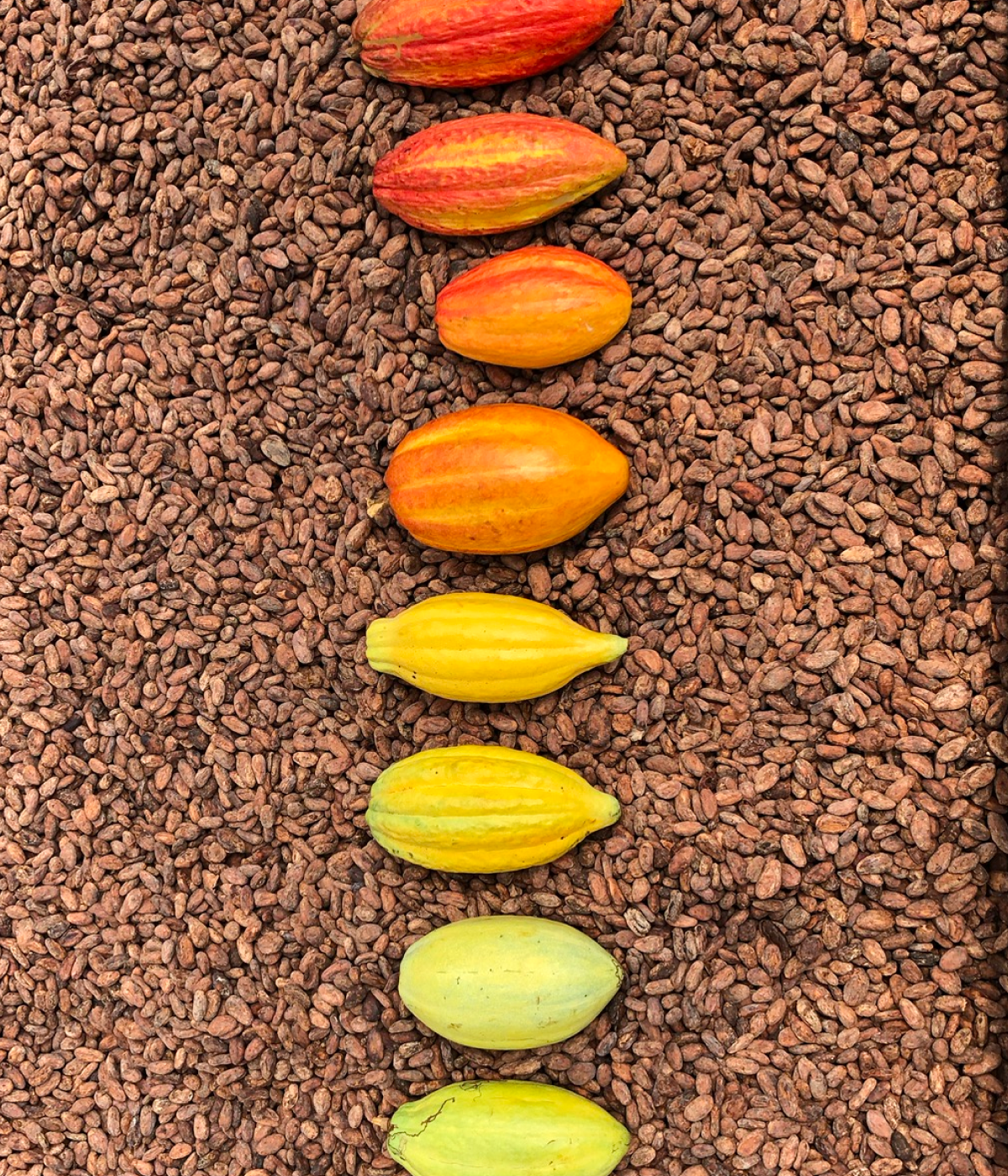
TERROIR
The Öko Caribe producer network farms are scattered across the Duarte province. Characterized by fertile, clay loam soils and lush tropical rainforest, Duarte and the surrounding region of El Cibao are where the majority of cacao is produced in the Dominican Republic. The Cordillera Septentrional, a mountain range that runs parallel to the north cost of the Dominican Republic and which reaches up to 1,250m in altitude, crosses through Duarte running just north of Pimentel, where the
Öko Caribe post-harvest facility is located. Cacao was introduced to the island of Hispaniola, which encompasses both the Dominican Republic and Haiti, at the end of the 16th century and beginning of the 17th century. The current genetic mix includes Trinitarios, Ecuadorian Nacionales, Venezuelan Criollo, and hybrids that are primarily mixes of Trinitarios and Nacional.
Nestled in the heart of the Duarte province in the Dominican Republic, Öko-Caribe's central fermentation is a gem of a supplier.
With more than 50 years of combined experience in cacao, owners Adriano de Jesus Rodriguez and Gualberto Acebey Torrejon have fine-tuned their systems to ensure consistent, superior quality in their 500+ tons of annual production. Öko Caribe maintains close relationships with its 165 farmers through tehcnical training, in agronomic practices and organic certification. In addition, owners Adriano and Gualberto have personal relationships with all farmers, offering microfinance loans for cacao-related expenses, as well as personal loans for family emergencies or other community needs. The loyalty betweenÖko Caribe and the farmers they work with is not only evidenced in daily interactions between staff, management and farmers, but also in their best-in-class, award winning final product.

TERROIR
The Öko Caribe producer network farms are scattered across the Duarte province. Characterized by fertile, clay loam soils and lush tropical rainforest, Duarte and the surrounding region of El Cibao are where the majority of cacao is produced in the Dominican Republic. The Cordillera Septentrional, a mountain range that runs parallel to the north cost of the Dominican Republic and which reaches up to 1,250m in altitude, crosses through Duarte running just north of Pimentel, where the
Öko Caribe post-harvest facility is located. Cacao was introduced to the island of Hispaniola, which encompasses both the Dominican Republic and Haiti, at the end of the 16th century and beginning of the 17th century. The current genetic mix includes Trinitarios, Ecuadorian Nacionales, Venezuelan Criollo, and hybrids that are primarily mixes of Trinitarios and Nacional.
Samples are only available from the USA
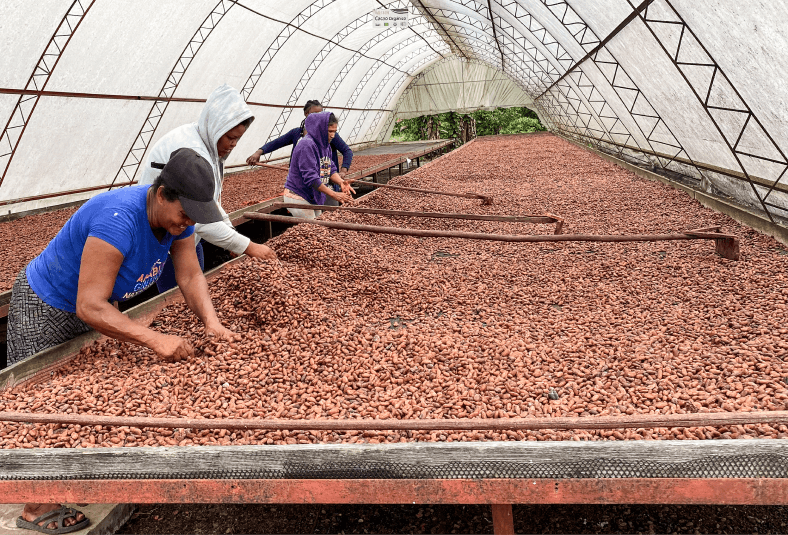
Notable Awards
90+ awards since 2014!
Pictured are Maritza Meregildo, Maria Genao, Alba Iris Rodriguez y Jazmin Garçon working at the drying decks

